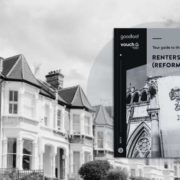When you let out a property, landlord insurance is your safety net.
But with so many options on the market, how do you know which policy is right for your needs?
Does your current insurance offer enough protection or is it leaving your let at risk? – Let’s take a look.
Easy mistakes to make
It’s surprisingly easy to end up with a policy that doesn’t provide as much protection as you think.
Often, it’s down to price.
The cheapest quotes rarely offer cover that takes into account your specific needs and, if you’re in a rush, it can be all too tempting to go for the quickest option.
But not giving your cover the proper attention could leave you exposed in future.
When looking for the right landlord insurance, you should make sure that your policy accounts for the important details, such as whether your property is listed, the type of tenants you have and the overall condition of your let.
This type of information matters when making a claim – and, if you get it wrong, it can have an impact on how much you can claim for.
Three risks of the wrong cover
- Underinsurance
If your let is completely destroyed – for example by fire – your insurance policy should be enough to pay for its complete reinstatement.
But if the maximum figure you’re insured for isn’t sufficient to cover these costs, it means you’re underinsured and will have to make up the shortfall yourself.
The economic uncertainty of the last few years has seen inflation rise sharply in the construction industry.
Supply chain issues and labour shortages have compounded the situation, meaning it costs a lot more to rebuild a property now than it did even just a year ago – and leaving many landlords underinsured.
Underinsurance can also be caused by something as simple as not updating your policy when you make changes to your property, for example when you invest in new fixtures such as a bathroom or kitchen.
If you don’t let your insurer know and you need to claim, your policy might not offer enough cover.
- Unexpected costs
As you know, letting out a property isn’t always plain sailing.
An emergency such as a broken boiler, a water leak, or even an infestation can cause real headaches for a landlord.
You may have to pay for temporary housing while you get the situation fixed.
Can you afford to buy a new boiler at the drop of a hat? If not, it might be worth reviewing your policy to include additional cover.
There’s also the risk that your tenants could stop paying rent.
The current economic turmoil is squeezing many household finances, increasing the risk of late or missed rent payments, but evictions can take up to a year to resolve and cost thousands of pounds in legal fees.
Does your current policy protect you in this scenario?
- Unoccupancy
Many policies have a clause that restricts your cover if the property is left empty for more than 30 days.
But you may not have tenants all year round.
Many students will go home for the summer, or you may find there’s a long gap between tenants – especially if you need to work on the house before you rent it out again.
So this is another factor than can easily catch landlords out.
How to find the right cover
The good news is, once you’re aware of the risks, it’s easy to find the cover that’s right for your let.
Your first step should be to assess the entirety of your property’s needs.
Calculate how much it would cost to reinstate or arrange a professional valuation if you can – and consider all the eventualities and unexpected costs that could occur during the rental period.
Can you afford to cover these without insurance, or should you add extras like Landlord Home Emergency cover or Rent Guarantee cover?
Next, talk to a broker.
The benefits of using a broker
A good insurance broker makes finding landlord insurance simple.
They have the expertise and knowledge to ask the right questions and they take the time to search the market for you.
Plus they can tailor cover to suit your needs – something an off-the-shelf policy cannot offer.
Good brokers will also have a good relationship with a range of insurance providers so they can negotiate on your behalf to always stay competitive on price – often finding deals that aren’t available directly.

























Comments